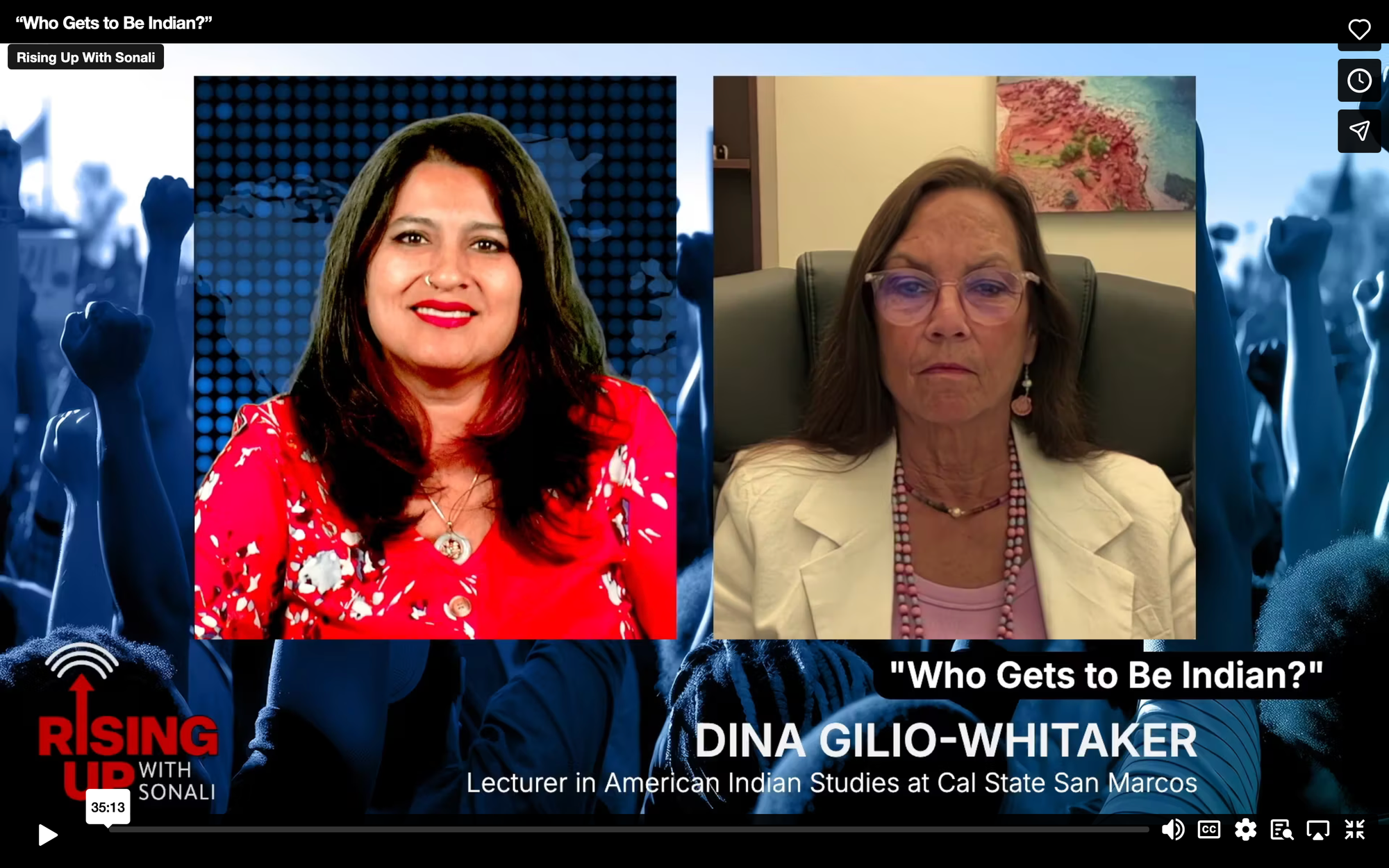FEATURING DINA GILIO-WHITAKER - In August 2022, the Academy of Motion Picture Arts and Sciences apologized to Sacheen Littlefeather for her mistreatment after her 1973 protest speech at the Oscars. Littlefeather shot to fame when Academy Award winner Marlon Brando asked her to decline the award on his behalf. She read a speech about Hollywood’s discrimination against Indigenous people and was booed off stage and blacklisted ever since.
But just days after receiving the Academy’s long-overdue apology, a shocking revelation about Littlefeather raised the fraught question of Indigenous American identity–she was outed as an ethnic fraudster and was revealed to not be who she said she was. The case sparked a new book by Dina Gilio-Whitaker (Colville Confederated Tribes). Gilio-Whitaker is a lecturer of American Indian Studies at California State University San Marcos, and an independent consultant and educator in environmental justice policy planning.
An award-winning journalist as well, she contributes to numerous online outlets including Indian Country Today and the Los Angeles Times. She is the author of multiple books, including As Long as Grass Grows: The Indigenous Fight for Environmental Justice from Colonization to Standing Rock. She spoke with Sonali Kolhatkar about her new book, Who Gets to Be Indian? Ethnic Fraud and Other Difficult Conversations about Native American Identity.
ROUGH TRANSCRIPT:
Sonali Kolhatkar: I remember being horribly shocked as well when the revelations about Sacheen Littlefeather came out. I was at that time writing a book about narratives and had actually written a whole section in my book about her putting forward a narrative about racial identity, ethnic identity, and native Americanness, and, had to quickly go back and kind of rewrite some aspects of it.
And I also remember you on Facebook—we’re Facebook friends—talking about it, you had a little bit of insight before the rest of the world knew what had really happened with Sacheen Littlefeather. Take us through that. You knew before most people did, that she actually wasn't who she said she was. And that was because you yourself had been fascinated by her story. So, tell us about that.
Dina Gilio-Whitaker: Right. Well, this is really the, the point of origin for this book. I mean, it's something I've been thinking about all my life because of my own com complex identity issues. But, the book started as a result of my relationship with Sacheen Littlefeather, which began in 2012 when I was writing for Indian Country today.
And, I had gotten to know her. I was asked to write a story about her. It was had to do with a Dennis Miller comment about her, a racial slur. And so, it led to my writing this article about that and meeting her.
After I wrote that article, she asked me if I would be willing to ghostwrite her memoir. She wanted to write this memoir, and this is about a couple years later. And I said, sure, you know, let's explore that. So, it led to this whole experience that I had with her, where we began the process of writing this book together.

